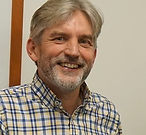THRIVING TOGETHER: FAITH AND CHURCH ATTENDANCE IN AUSTRALIA IN 2025
- Ian Duncum
- Aug 3, 2025
- 4 min read
Updated: Sep 17, 2025
THRIVING TOGETHER BLOG INTRO
For many years, I have shared both the pain and joys of those who work with churches. Like many of you, I have often wondered if there are better ways to thrive together and make a missional impact on our world. It’s not about trying harder; it’s about doing different things in new ways. This involves interrupting our routines and reflecting on our practices.
As a pastoral supervisor, trainer, lecturer, and consultant for churches and non-profits, I strive to provide valuable insights. I hope my posts serve as refreshing water for those planted in churches so we can thrive together.
Please let me know your thoughts in the comments. Or you can reach out to me through my website: www.ianduncum.com.au.
FAITH AND CHURCH ATTENDANCE IN AUSTRALIA IN 2025
And something is happening here but you don't know what it is Do you, Mr. Jones?
Bob Dylan, Ballad of a Thin Man
Recently, there has been a lot of discussion worldwide and in Australia. This was prompted by the Bible Society UK report titled The Quiet Revival (https://www.biblesociety.org.uk/research/quiet-revival). While it is only part of the picture, I decided to check Google Trends for searches related to “Christianity” in Australia. Here’s what I found:

Key Observations from Google Trends
I noticed two significant trends in the data:
The trend is slightly upwards since January 2022.
There is a strong upward curve since early July 2025.
While these observations alone do not confirm a definitive trend, they prompt further exploration. The major emerging trends regarding Christian faith and church attendance in Australia reveal a complex and evolving landscape:
Overall Decline in Christian Identification
The proportion of Australians identifying as Christian has dropped significantly. In 2010, about 61% identified as Christian, but this fell to 44% in 2021. This trend continues across recent census data. This is the fastest rate of decline in decades. Millions are moving from Christian affiliation to “no religion.” There are no surprises in this data.
Growth in Spiritual Curiosity and Conversion
Despite the overall decline, there is a significant “undercurrent” of Australians—almost 785,000 in the last census—who have moved from “no religion” to Christianity. Many of those converting or returning to Christianity are older Australians, especially those over 55. They often respond to significant life events like bereavement or retirement.
Decline in Denominational Identification; Rise of ‘Just Christian’
More Australians now simply identify as “Christian” without a specific denomination. This reflects a drift from organized religion and the rise of non-denominational faith expressions.
Church Attendance Patterns
While overall identification has dropped, regular church attendance rates have remained steady. This is particularly true among young, committed Christians. However, only around 7% of Australians attend church weekly.
Shifting Demographics
Older adults are increasingly embracing or returning to Christianity. In contrast, younger Australians are more likely to leave, often citing irrelevance rather than disbelief. However, some young people are also turning to Christianity, motivated by desires for meaning and belonging.
Rise of Multisite and Church Planting
To reach younger generations and respond to disengagement, churches are adopting newer forms of church, including multisite models. These models focus on smaller, localized communities rather than traditional large congregations. Many of these are focused on church planting or replanting declining congregations. Some are emerging into multiplication, where churches that are planted in turn plant other churches, forming church planting networks. Church planting has gained significant traction, though it still appears to lag the rate of church closures for now.
Positive Perceptions of Christian Values
Even among those who no longer identify as Christian, there is broad respect for Christian values. Many Australians see Christianity as making sense or aligning with values they hold, even if they do not practice it personally.
Greater Faith Engagement Among Converts
Those who newly identify as Christian, especially younger individuals, display higher levels of active engagement. This includes weekly prayer and regular Bible reading.
Summary of Trends
In summary, Australia’s relationship with Christianity is not simply one of linear decline. While nominal affiliation is weakening, committed belief and conversion—especially among the elderly and some youth—remain notable trends. The faith is adapting through new forms of community, more personalized expression, and innovative outreach strategies.
So, what are the main takeaways?
The way we do church needs to change to be responsive to these trends. It is clear that while many churches are plateaued or declining in Australia (70% during Covid - NCLS Research), there are significant pockets of growth. This indicates that growth is possible and that the drivers of that growth are primarily based on how local congregations function, rather than societal trends being determinative.
We need to be missional. This means actively engaging in faith-sharing individually and as churches if we are to respond to the spiritual interest present in Australia. We also need to innovate in outreach as if it is 2025.
Sources
https://www.abs.gov.au/articles/religious-affiliation-australia
https://vision.org.au/read/news/christian-faith-far-from-waning-in-australia/
https://www.sonshine.com.au/articles/australians-are-turning-to-christianity-in-large-numbers/
https://www.catholicvoice.org.au/shifting-trends-in-christianity-commitment-across-australia-and-uk/
https://mccrindle.com.au/app/uploads/2018/04/Faith-and-Belief-in-Australia-Report_McCrindle_2017.pdf
© 2025 Ian Duncum. All rights reserved. No reproduction without written permission. Rev Dr Ian Duncum is a trained and accredited church consultant with over 20 years of experience with non-profit enterprises and churches across several denominations. This includes denominational leadership in church health, church planting, consultancy training, and adjunct lecturing & research in the tertiary education sector. An accredited minister with a track record of growing churches, Ian trains church consultants, facilitates training for ministers and leaders, and supervises pastors and other leaders. Ian can be contacted at ian@ianduncum.com.au.





